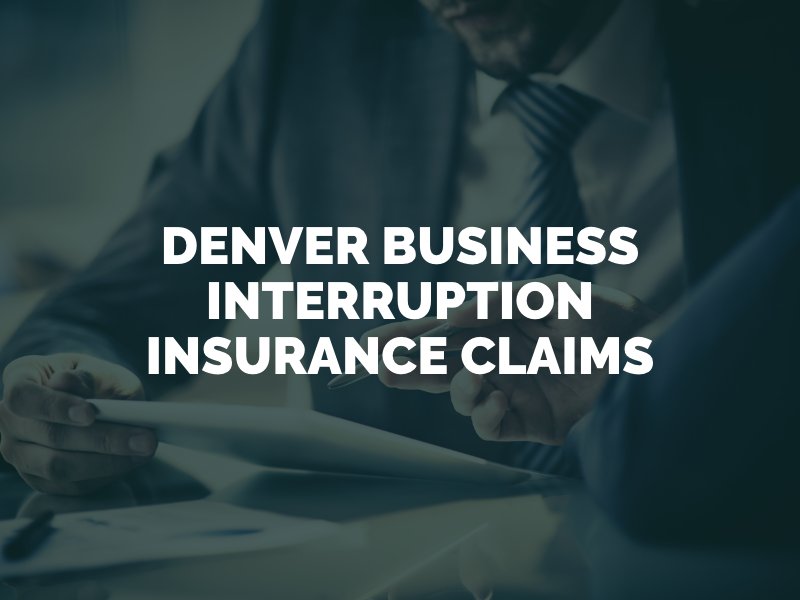The coronavirus (COVID-19) pandemic has had a major impact on businesses in Colorado, leading to an influx of business interruption insurance claims. These claims aim to compensate business owners for revenue lost during disaster periods. Most claimants will receive immediate denials from insurance companies for business interruption claims concerning COVID-19, however, due to virus exclusions. Yet not all of these denials are legal.
An analysis of your policy and a review of the surrounding laws by a lawyer at Fang Accident Lawyers could help you protect your rights during this difficult time. Contact us now for a free initial consultation about your business interruption insurance claim in Colorado.

Business interruption insurance generally covers revenue lost due to interruptions to a company’s operations. Most claims involve physical damage to a store, such as destruction from a fire or natural disaster. Contingent provisions may also provide coverage for losses related to a problem with a supplier or vendor. The language of most insurance policies states that the insurance company will pay for the loss of business-related income due to the interruption of operations during a period of restoration or relocation. Valid insurance claims could lead to compensation for a few types of losses.
Business interruption coverage serves to bridge the income gap for business owners during the restoration or relocation of a business due to a covered event or disaster. The amount of coverage provided will depend on the limits of the policy. Policies may contain basic business interruption insurance, extended business interruption and/or contingent business interruption coverage. Each type of policy will cover different losses.
COVID-19 has resulted in strict quarantine and lockdown orders in states and cities around the country. The ramifications of the pandemic are enormous for businesses. Restricted crowd sizes, stay-at-home orders, the canceling of most events and mandatory shut-downs for nonessential businesses have already led to millions of dollars in revenue lost for businesses. COVID-19 has made it difficult to impossible for many small businesses to stay afloat. Many business owners are seeking alternative outlets for income – including business interruption insurance claims.
Business owners who have filed these claims, however, have found that insurance companies are fast to refute liability for revenue lost due to COVID-19, often citing virus exclusions. Many policies have specific exclusions denying coverage for losses and damages connected to viruses, enacted years ago to protect insurers from foreseeable pandemics. These provisions can present coverage issues, but might not bar a policyholder from recovery entirely. How your insurance company and the courts in Denver handle the terms of your business interruption insurance policy will depend on the specific situation.
Do not take an insurance claim denial related to COVID-19 as the final word on the matter. Many denials are illegal or invalid based on the language of the policy. Some states, such as New Jersey, are considering passing laws that would force insurance companies to offer at least partial business interruption coverage for COVID-19 claims. You may be able to improve your odds of a successful claim by carefully analyzing your insurance policy, checking for specific virus exclusions, reviewing the related laws in your state, keeping up with the latest legislative changes and hiring a lawyer to help you negotiate an insurance claim.
This is a time of great uncertainty for everyone. If you are the owner of a business that is struggling financially due to consequences of COVID-19 and related restrictions, please contact Fang Accident Lawyers right away for a free consultation in Denver, Colorado. A claim denial might not be the final word. Our attorneys can review your specific insurance policy, inform you of the latest state laws regarding COVID-19 and potentially help you fight for compensation from your business interruption insurance provider. Call now to speak to an attorney today.